If you live in USDA Zone 4, you may think that your garden options are limited due to the cooler temperatures and lower light conditions that come with this zone.
However, there are plenty of shade-loving plants that can thrive in these conditions and add a touch of natural beauty to your outdoor space.
These plants are not only aesthetically pleasing but also hardy enough to withstand cooler temperatures (-22°F) and lower light conditions found in this zone.
In this guide, we'll explore some of the top shade-loving plants that can grow in USDA Zone 4, providing you with a range of options to transform your low-light garden areas into enchanting spaces filled with color, texture, and fragrance.
Top Perennial Shade-Loving Plants
Creating a beautiful shade garden in USDA Zone 4 can be a rewarding and enjoyable experience when choosing the right perennial plants.
Here are some top shade-loving perennials that thrive in this gardening zone:
Hostas
Hostas are an excellent choice for a shade garden, as they are low-maintenance and come in various shades of green, blue, and white.
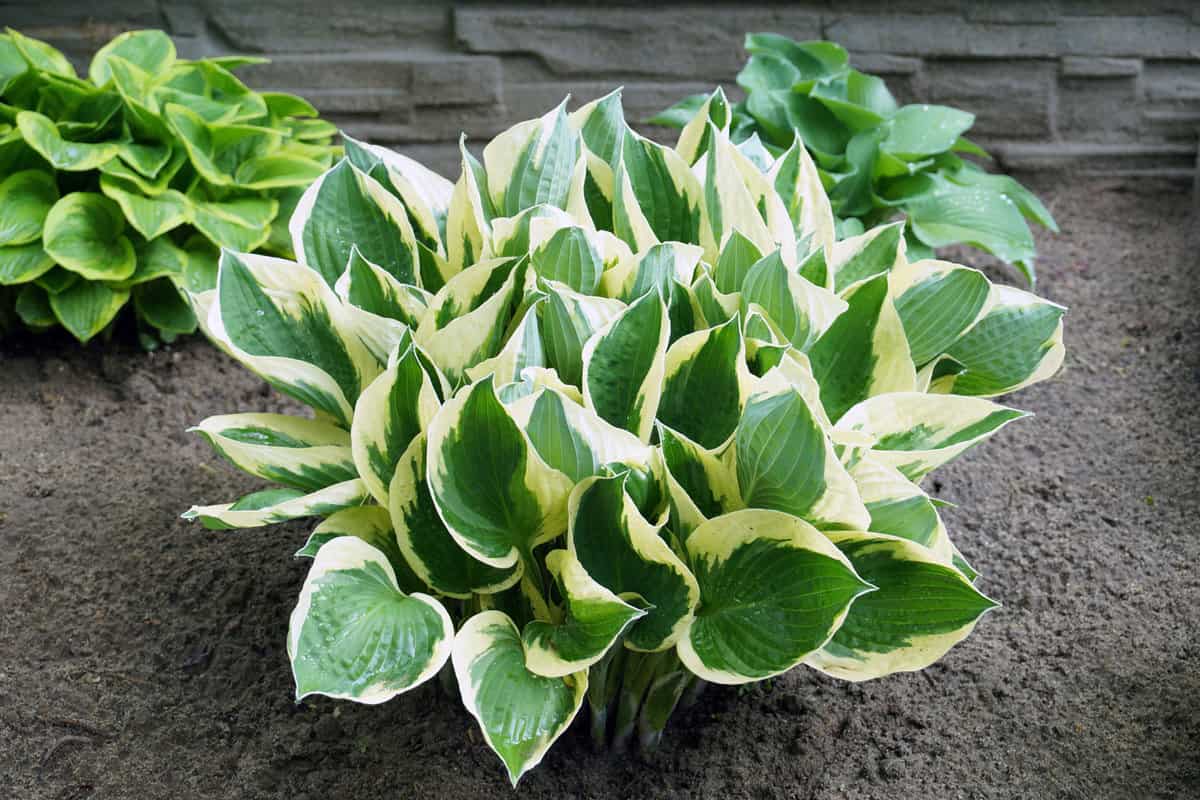
These plants love partial to full shade and are known for their stunning foliage.
The flowers—which can be purple, pink, or white—attract bees and hummingbirds.
Bleeding Hearts
Bleeding heart plants are cherished for their unique, heart-shaped flowers that come in pink, white, and red varieties.
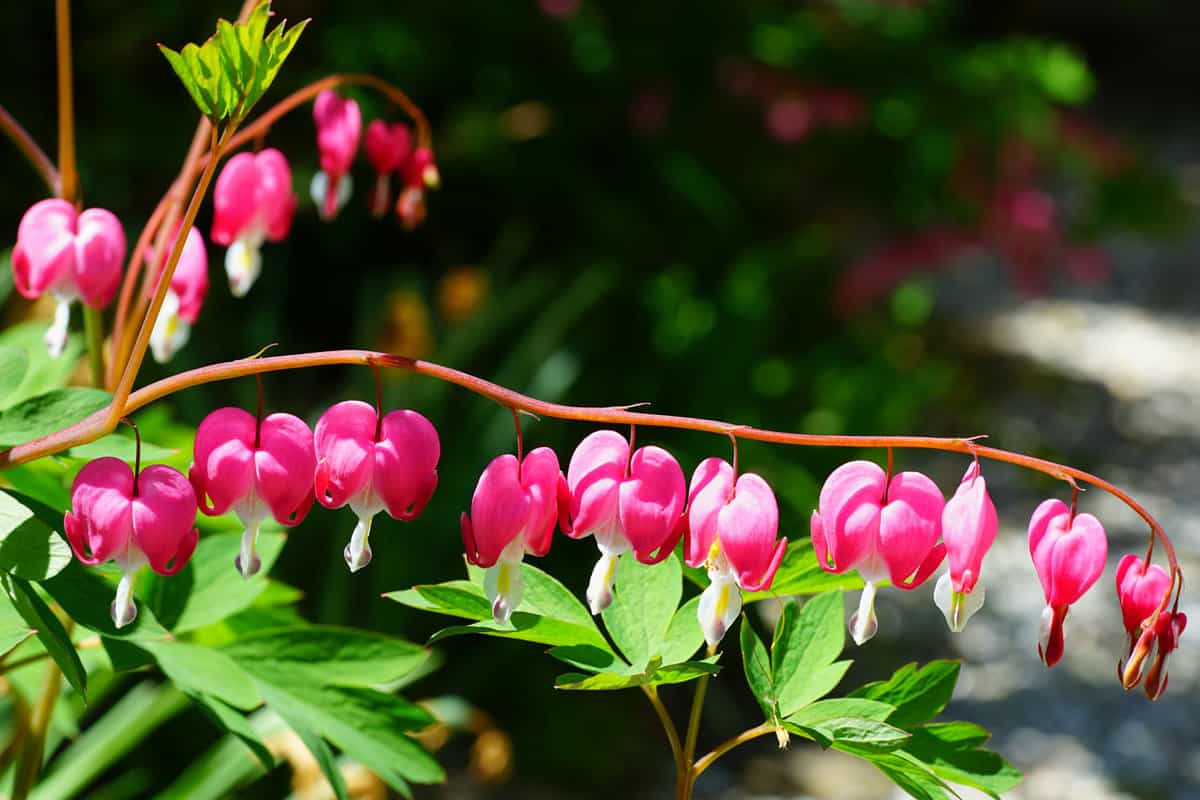
They do well in part sun or shade and thrive in Zone 4. Hummingbirds find the nectar-rich flowers irresistible.
Astilbes
Astilbes are known for their feathery, plume-like flowers that bloom in shades of pink, red, and white.
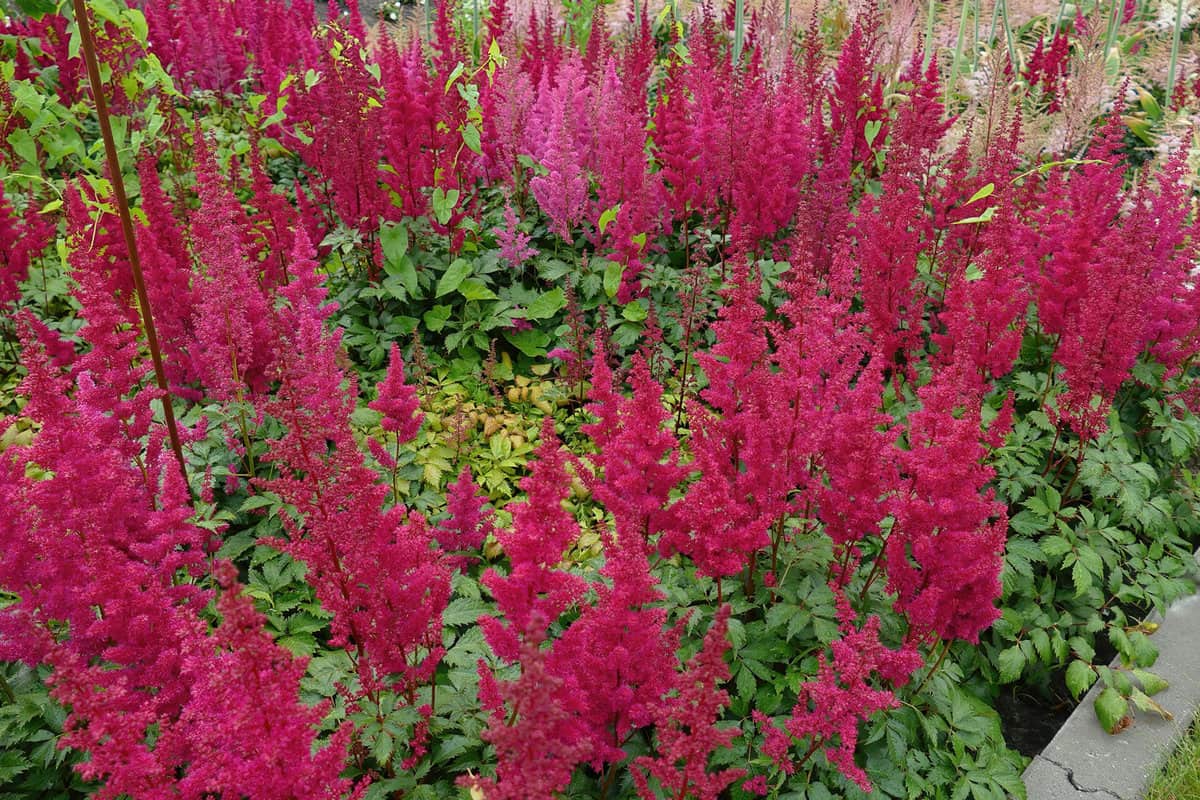
They prefer partial shade and moist soil. Their attractive foliage also adds texture and interest to a shade garden.
Coral Bells
Coral bells are an excellent option for adding pops of color to your shade garden with their vibrant foliage in shades of green, purple, and bronze.
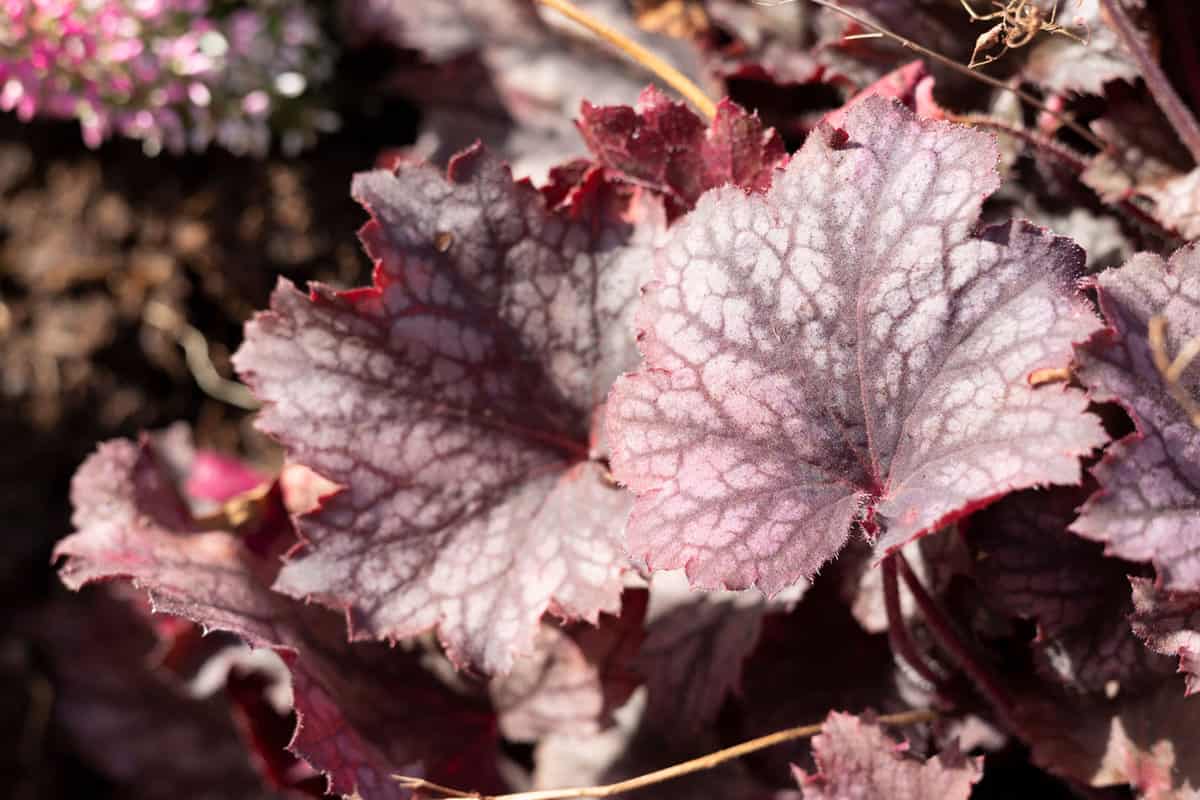
They produce delicate, bell-shaped flowers that attract bees and hummingbirds. Coral bells enjoy partial shade and well-drained soil.
Japanese Painted Ferns
Japanese-painted ferns add a unique touch to your shade garden with their striking, silver foliage.
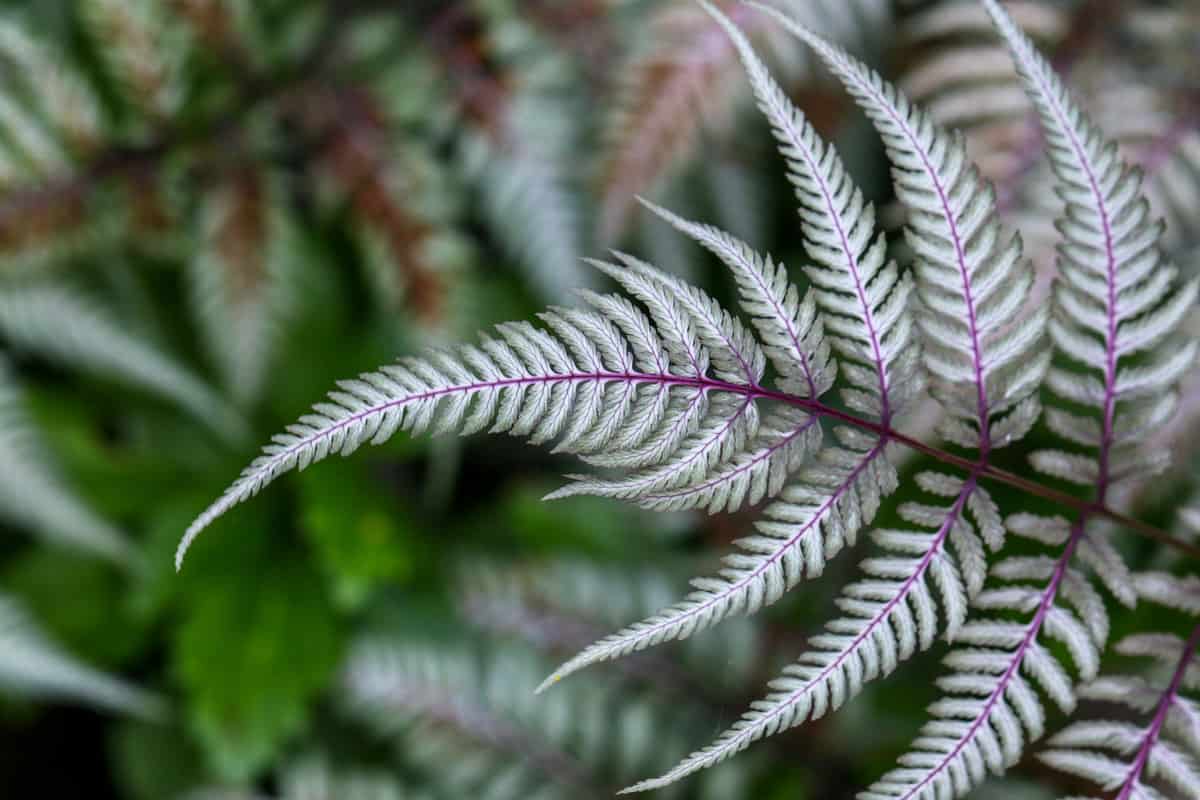
They grow well in partial to full shade and require little maintenance. These plants add texture and contrast to your garden.
Lenten Roses
Lenten roses, also known as hellebores, are winter-blooming perennials that can add unique interest to your shade garden.
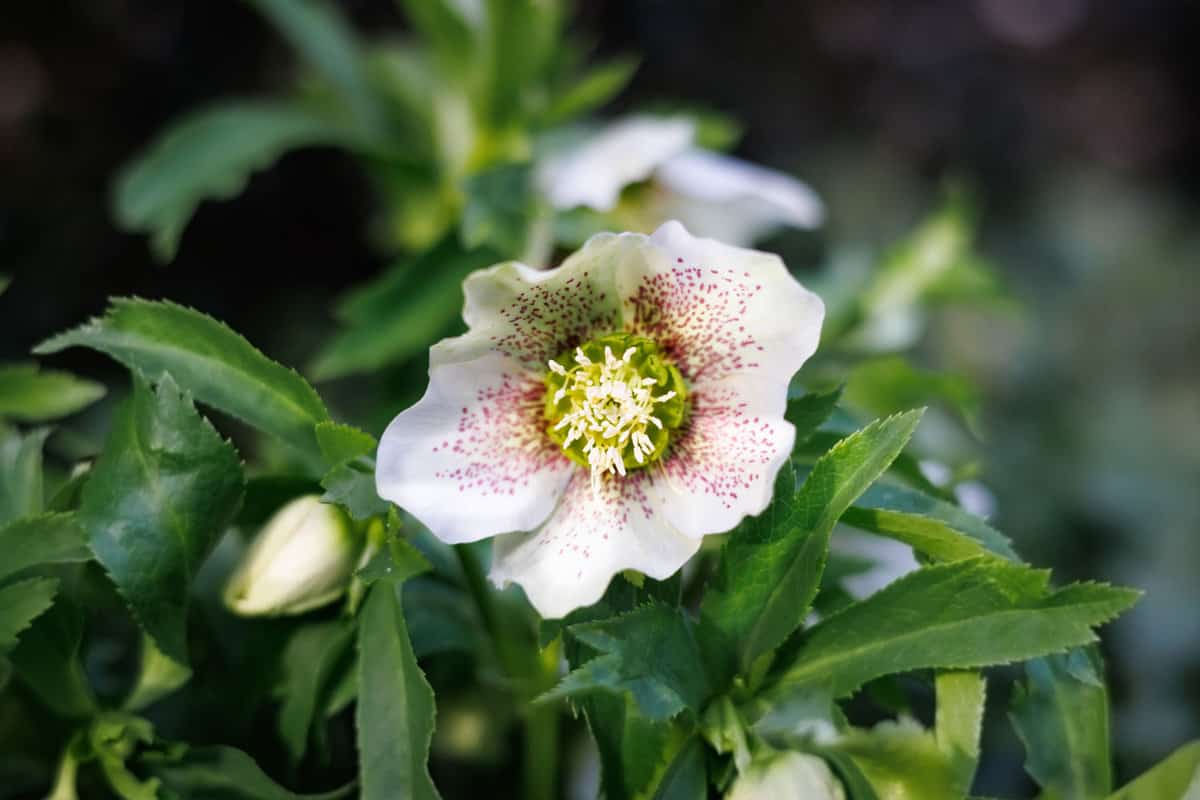
Their flowers come in various shades of green, pink, and white. They're hardy in Zones 3-9, making them perfect for your USDA Zone 4 garden.
Rhododendrons
Rhododendrons are well-suited for a shade garden and come in various sizes and flower colors, including pink, purple, red, and white.
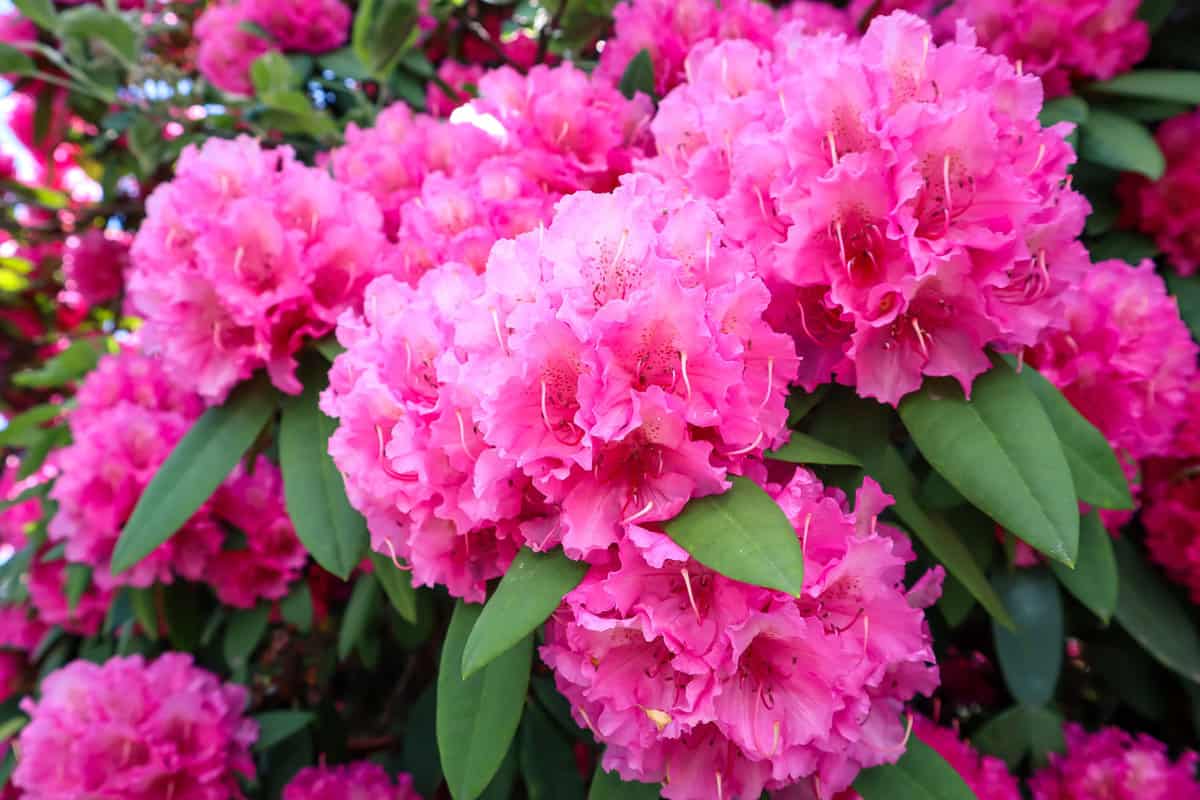
These evergreen plants love dappled shade and moist, well-drained soil. They are an eye-catching addition to your shade garden.
Columbines
Columbines are known for their delicate, bell-shaped flowers that add a whimsical touch to any shade garden.
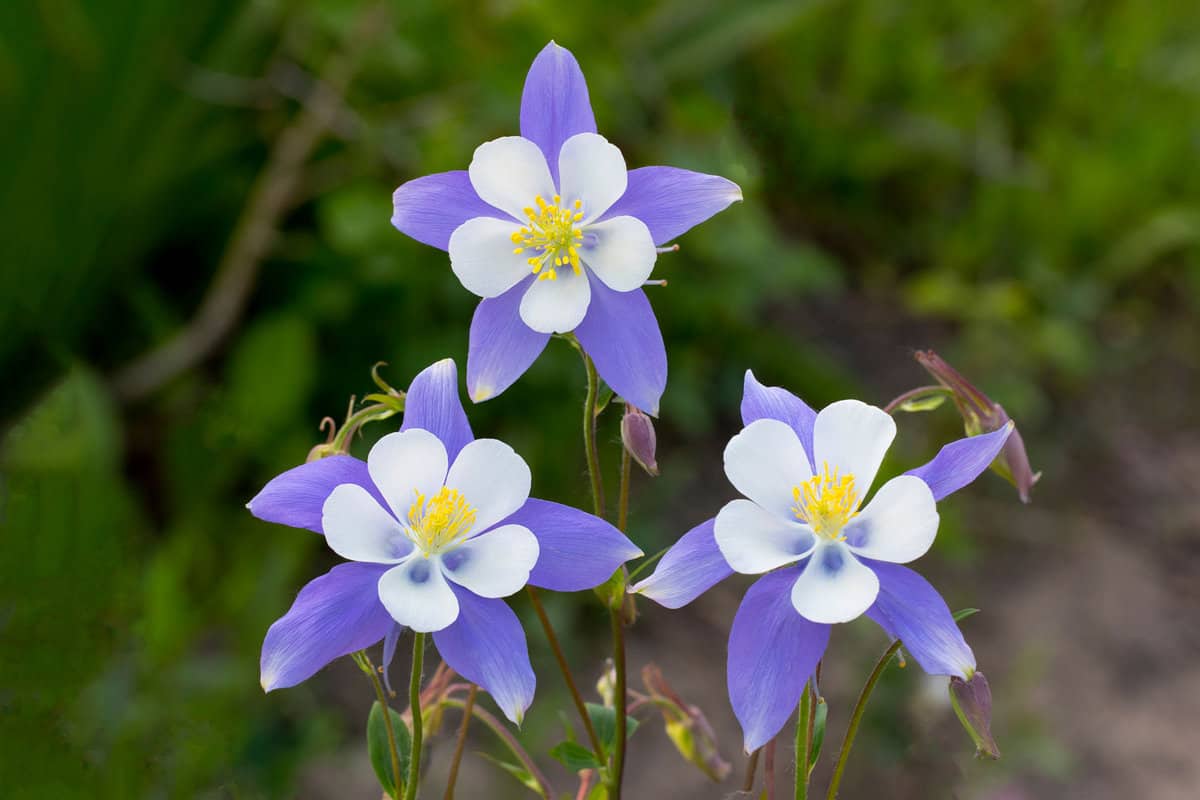
These flowering plants come in various colors, from purple and blue to yellow and red. They enjoy partial shade and moist soil.
Siberian Bugloss
Siberian bugloss, or Brunnera macrophylla, is an excellent shade-loving perennial with striking heart-shaped leaves and tiny, sky-blue flowers.
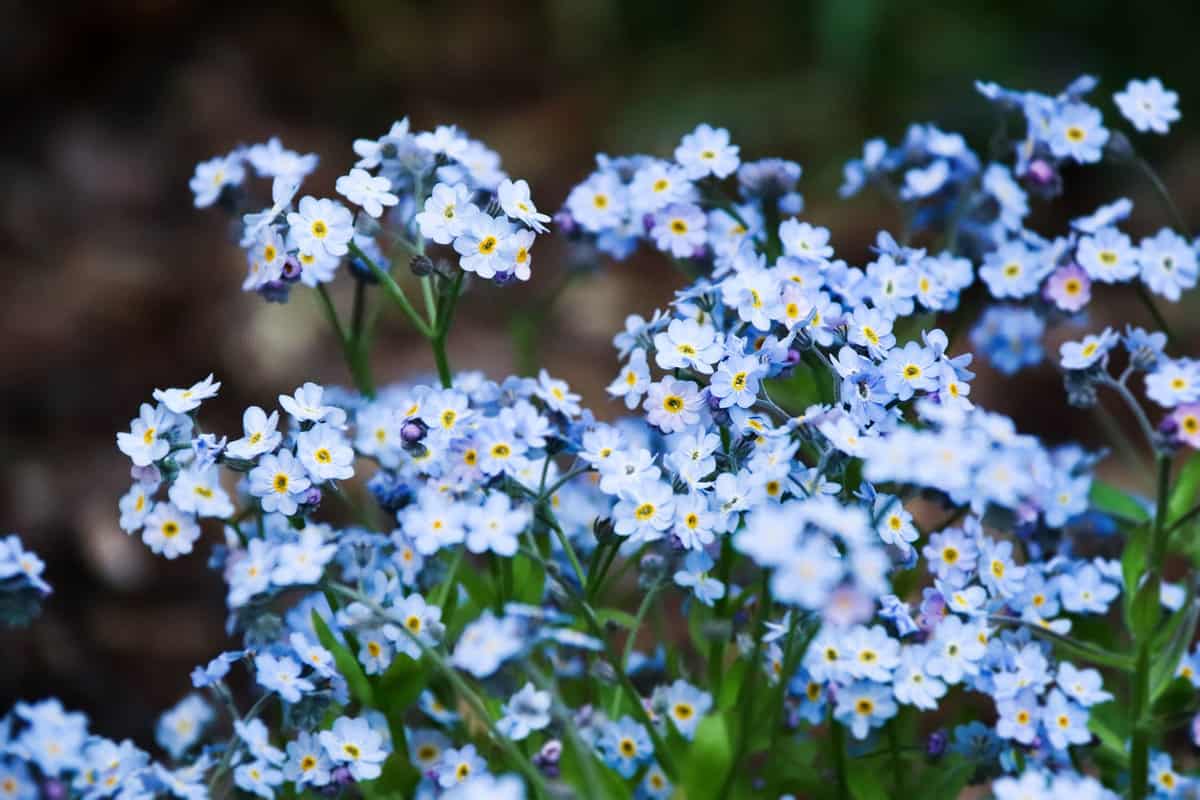
This plant thrives in partial to full shade and moist, well-drained soil. It adds an enchanting, woodland feel to your shade garden.
Top Annual Shade-Loving Plants
There are several annual Zone 4 shade-loving plants that can add color and interest to your garden, and some of them are:
Impatiens
Impatiens are a popular choice for shade gardens, as these colorful flowers can bring a lively burst of color to even the darkest corners.
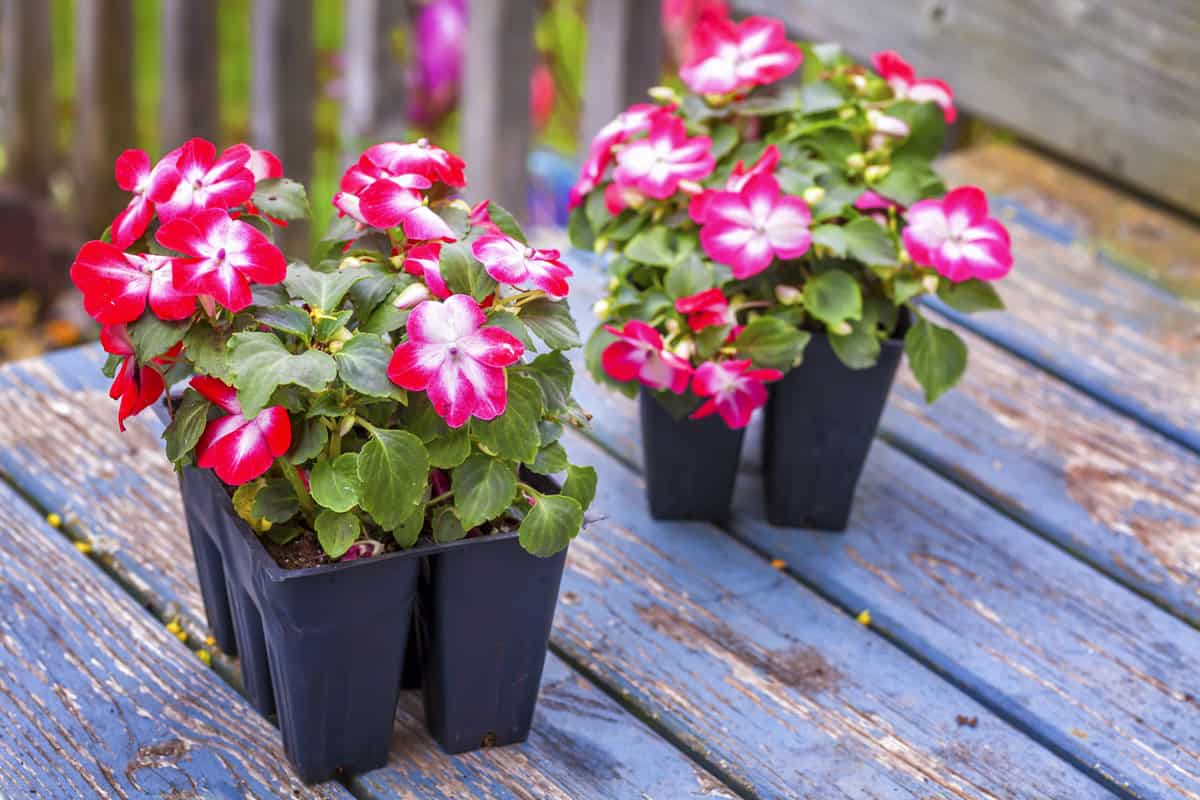
Originating from East Asia, Impatiens walleriana is known for its bright, eye-catching blooms, and it thrives in full sun to part shade conditions.
To keep your Impatiens healthy, it's essential to maintain consistently moist soil and provide adequate drainage.
Begonia
Begonias are another excellent option for a shade garden in USDA Zone 4.
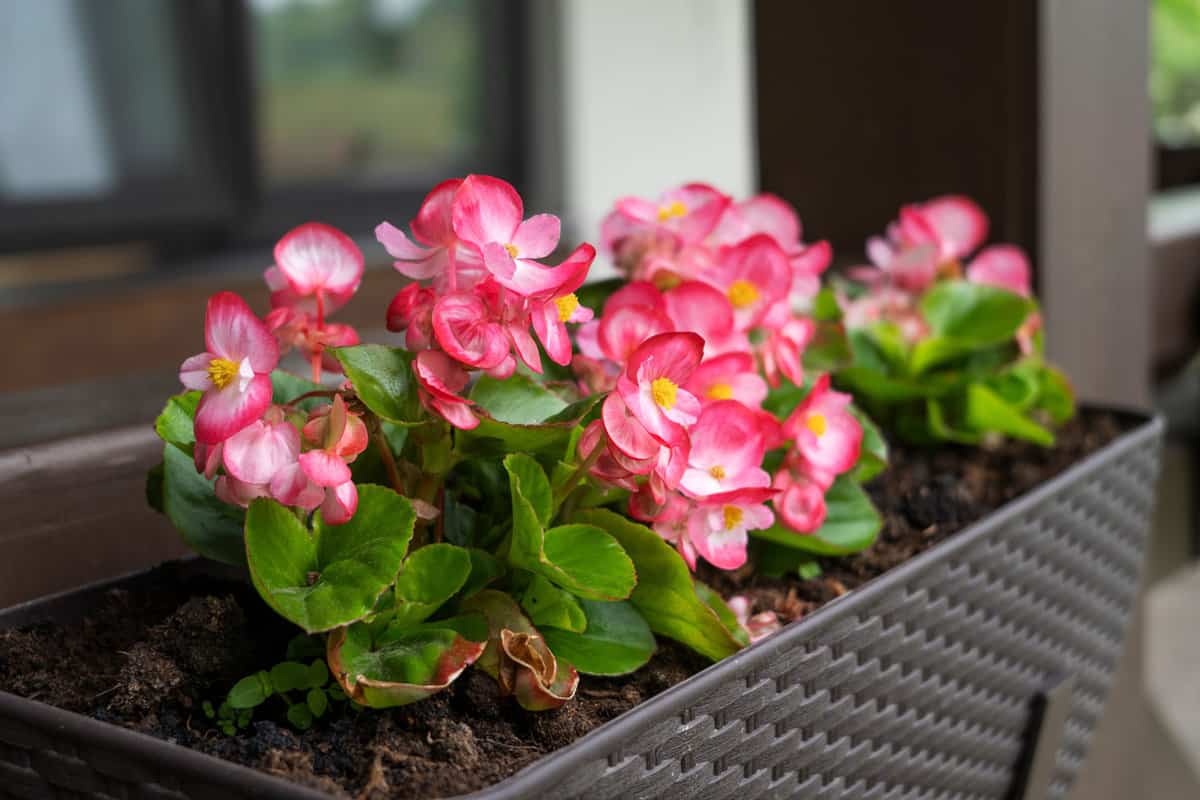
This diverse group of plants consists of many vibrant species that produce beautiful foliage and flowers in a variety of shapes and colors.
When choosing a Begonia for your shade garden, consider one that prefers part shade conditions and is cold-tolerant to match the climate of Zone 4.
Eastern North American Bluebells
Eastern North American Bluebells (Mertensia virginica) are delicate woodland perennials that can also be planted as annuals in a shade garden.
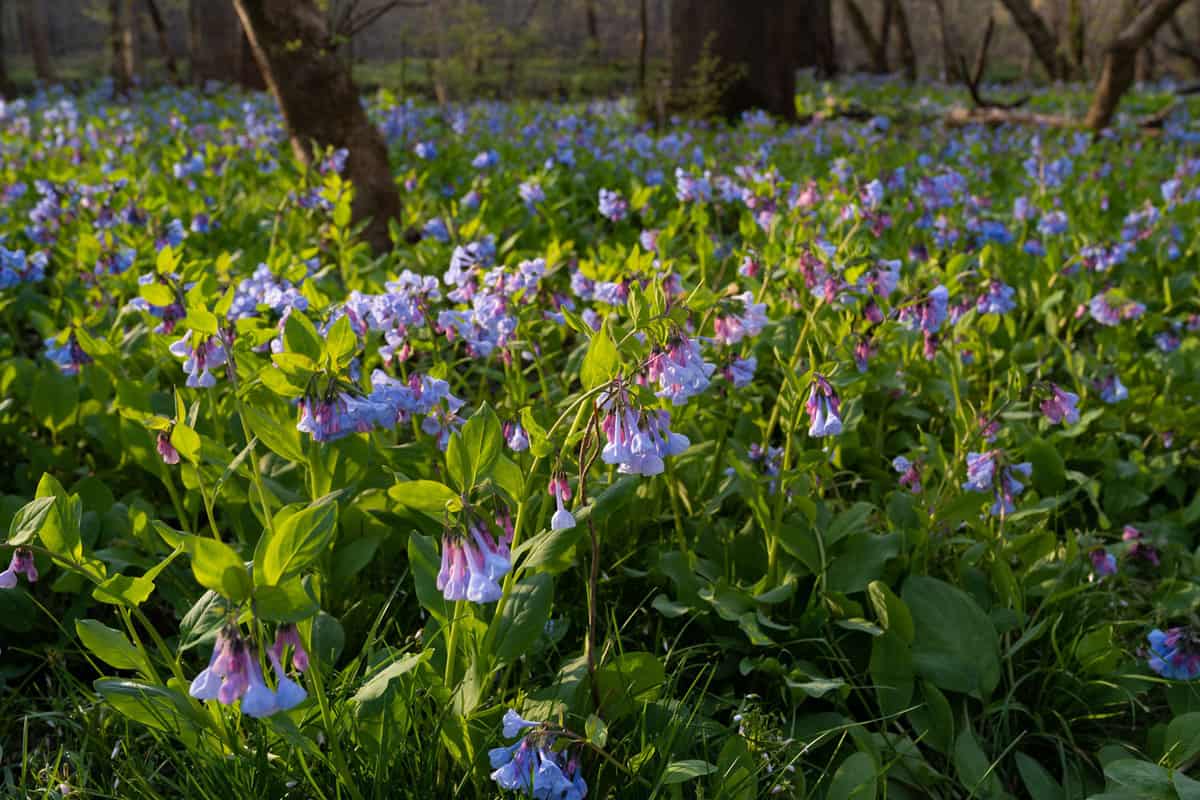
These charming flowers display lovely bell-shaped blooms in a cool shade of blue, which can create a calming ambiance in your shaded retreat.
To get the best results with these native plants, provide rich, well-draining soil and steady moisture.
Calendula
Calendula, often known as pot marigold, is a versatile plant that can adapt to various light conditions, including part shade.
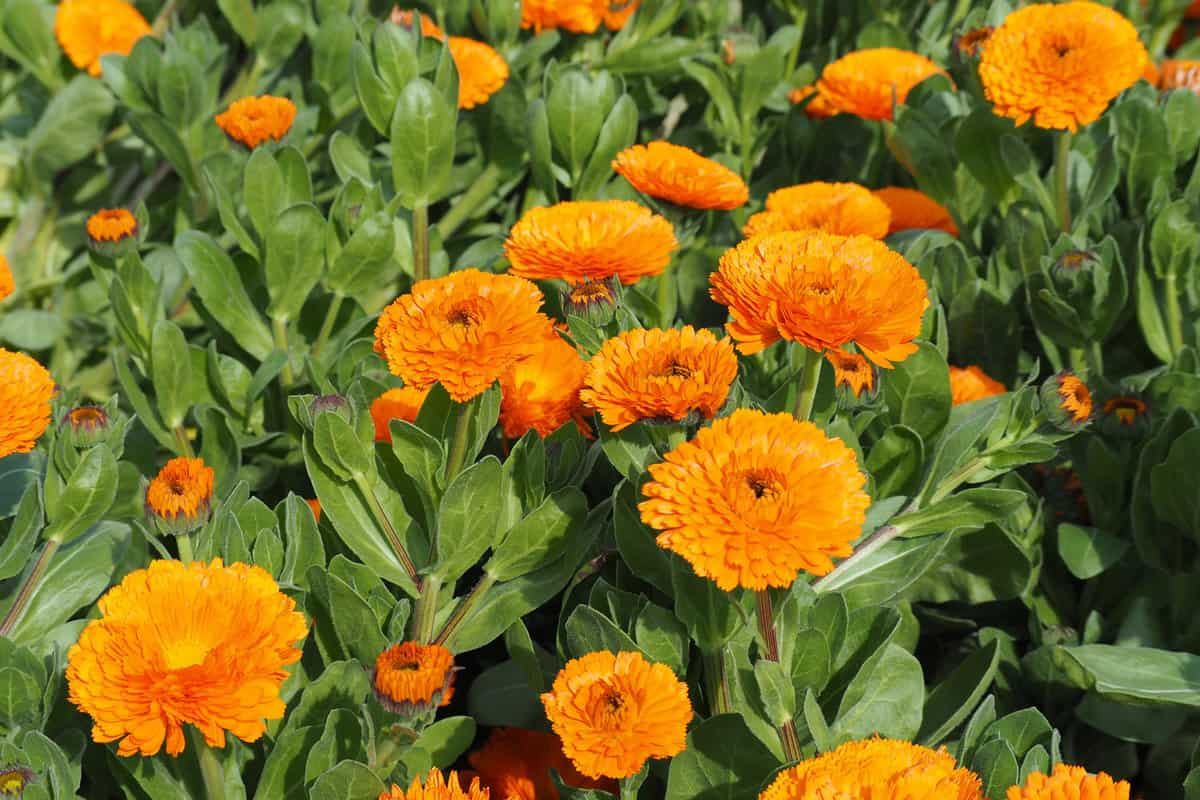
While it might not be a traditional pick for shade gardens, its bright and cheery flowers can add a splash of sunshine to darker spaces.
Calendula requires moderately fertile soil and may even self-seed, providing continuous color throughout your garden.
Forget-Me-Not
Forget-me-nots (Myosotis spp.) are charming little perennials that can be grown as annuals in your shade garden.
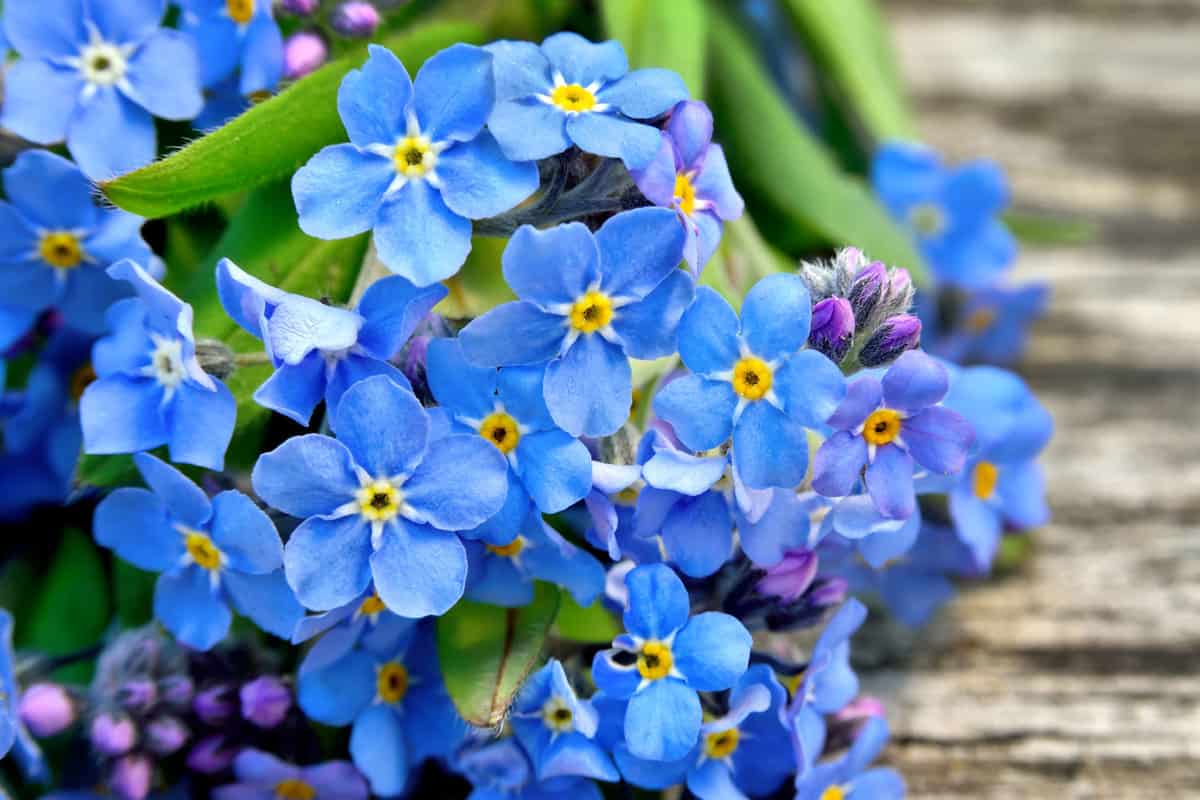
With their clusters of delicate blue flowers, they add a touch of whimsy and nostalgia to a shaded area.
They prefer moist, well-draining soil and can even tolerate damp conditions, making them a great option for spots where other plants struggle.
Top Ground Cover Shade-Loving Plants
There are several low-maintenance ground covers that not only thrive in shaded areas but also enhance the beauty of your garden.
In this section, we'll discuss six shade-tolerant ground covers perfect for shading your garden in USDA Zone 4.
Vinca Minor
Vinca minor, also known as periwinkle, is a popular evergreen ground cover perfect for your shade garden.
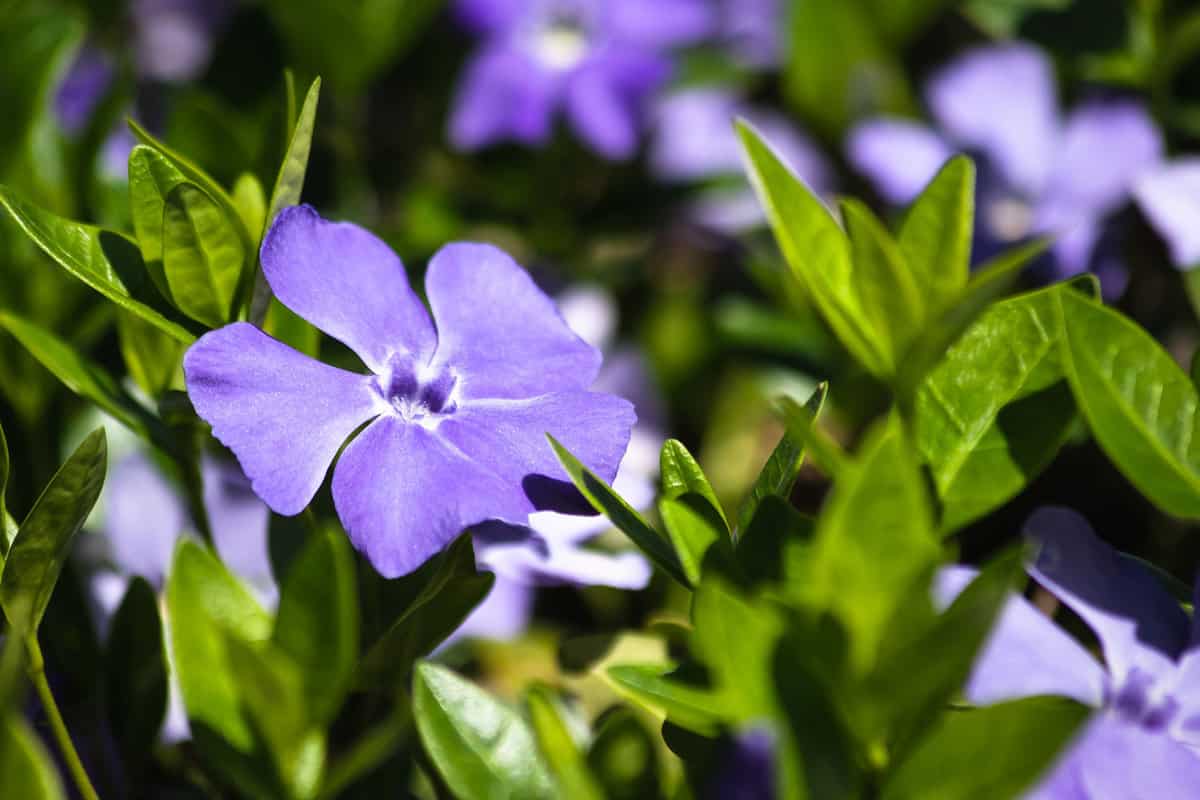
This plant forms a dense carpet, effectively suppressing weeds and enhancing your garden's aesthetic.
Vinca minor boasts beautiful blue-purple flowers in spring and is a low-maintenance option for your shade garden.
Bunchberry
Bunchberry, also known as Cornus canadensis, is a deciduous North American native plant.
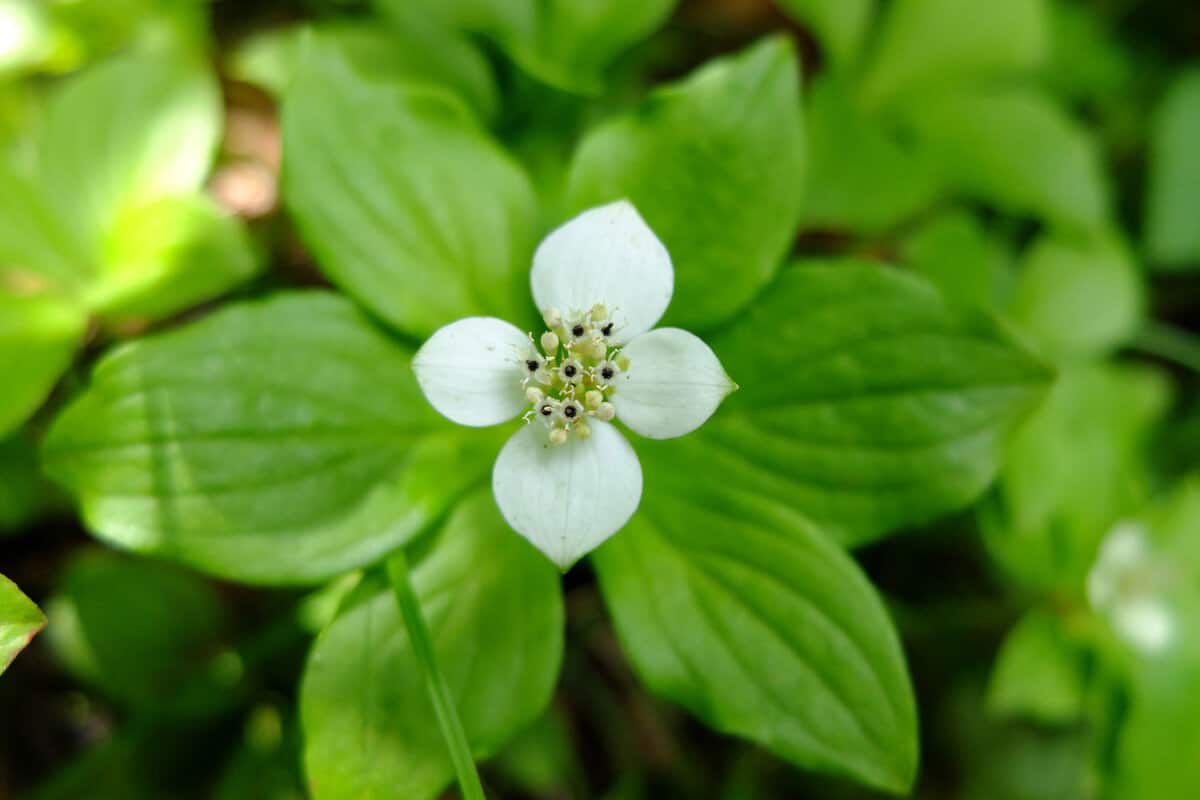
This shade-loving ground cover features attractive green foliage and small, white flowers in the spring, followed by red berries later in the season.
Bunchberry adapts well to various soil types and is an excellent choice for adding a touch of color to your shaded garden.
Moss
Mosses bring a unique soft texture to your shade garden.
Perfect for low-light areas, moss requires minimal care, making it an ideal low-maintenance ground cover.
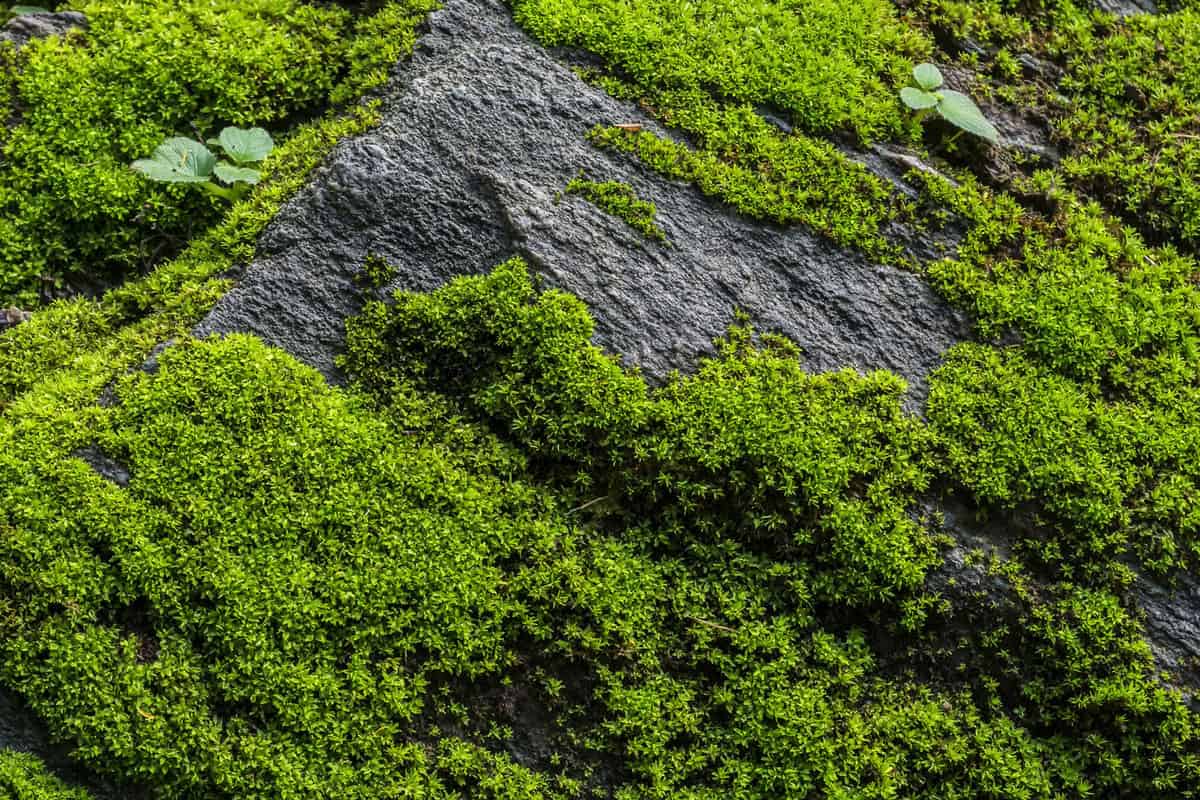
Several types of moss, such as sheet or cushion moss, thrive in USDA Zone 4, adding variety to your garden's appearance.
They can also be used effectively to cover rocks, pathways, or other surfaces in the garden.
Coleus
Coleus is a shade-loving, colorful foliage plant that is perfect for brightening up shaded corners of your garden.
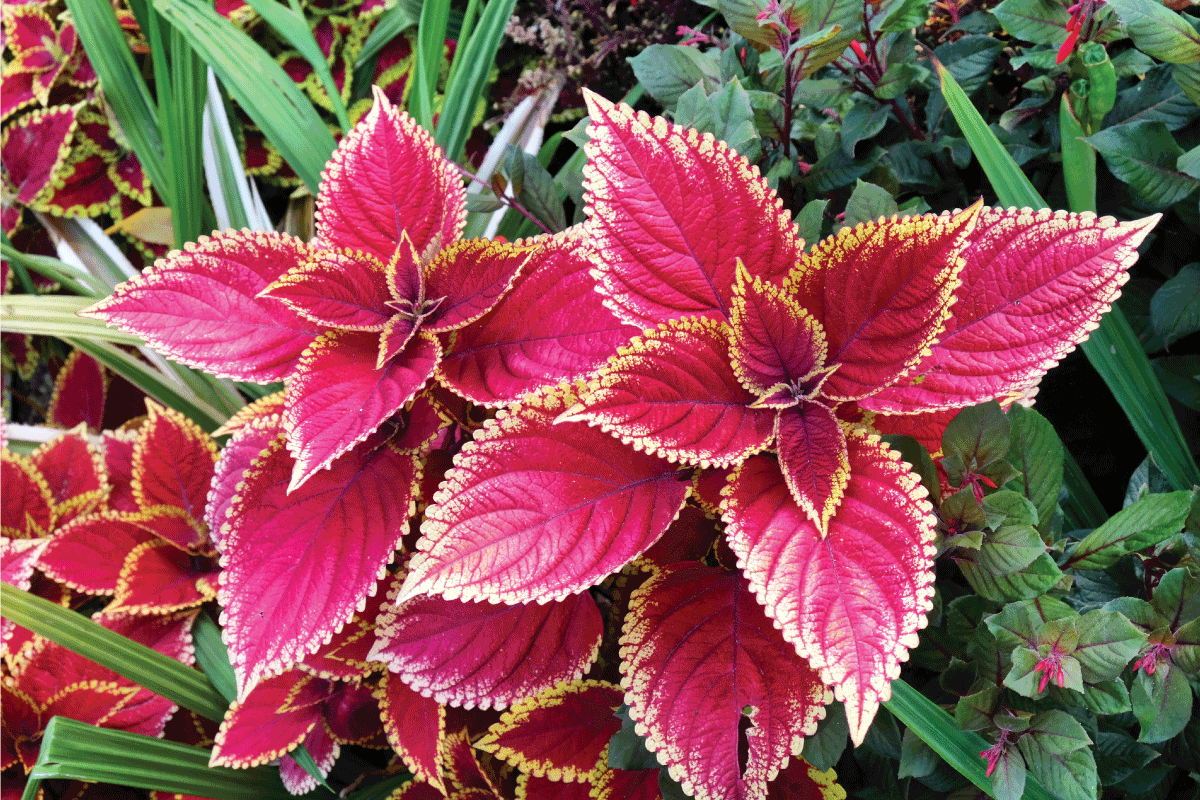
The various species of Coleus offer a wide range of colors and patterns to choose from, making them a versatile component of your shade garden.
Although they're technically an annual, coleus can be easily propagated from cuttings, providing you with an ongoing supply of vibrant plants.
Japanese Spurge
Japanese spurge (Pachysandra terminalis) is an evergreen ground cover with small white flowers in spring.
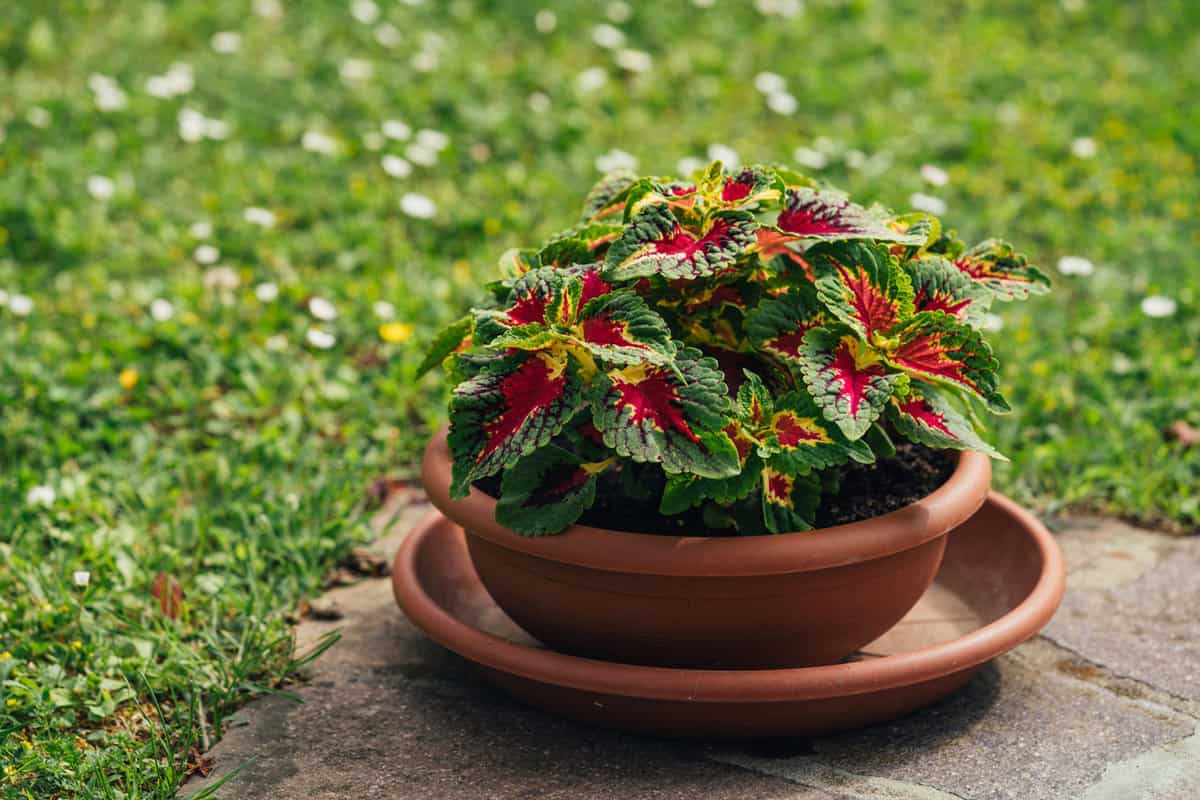
This shade-loving plant forms dense mats, helping to suppress weeds and requiring minimal care.
Japanese spurge is an excellent pick for your shade garden, as it provides lush greenery throughout the year.
Creeping Jenny
Creeping Jenny, also known as Lysimachia nummularia, is a fast-growing, shade-tolerant ground cover.
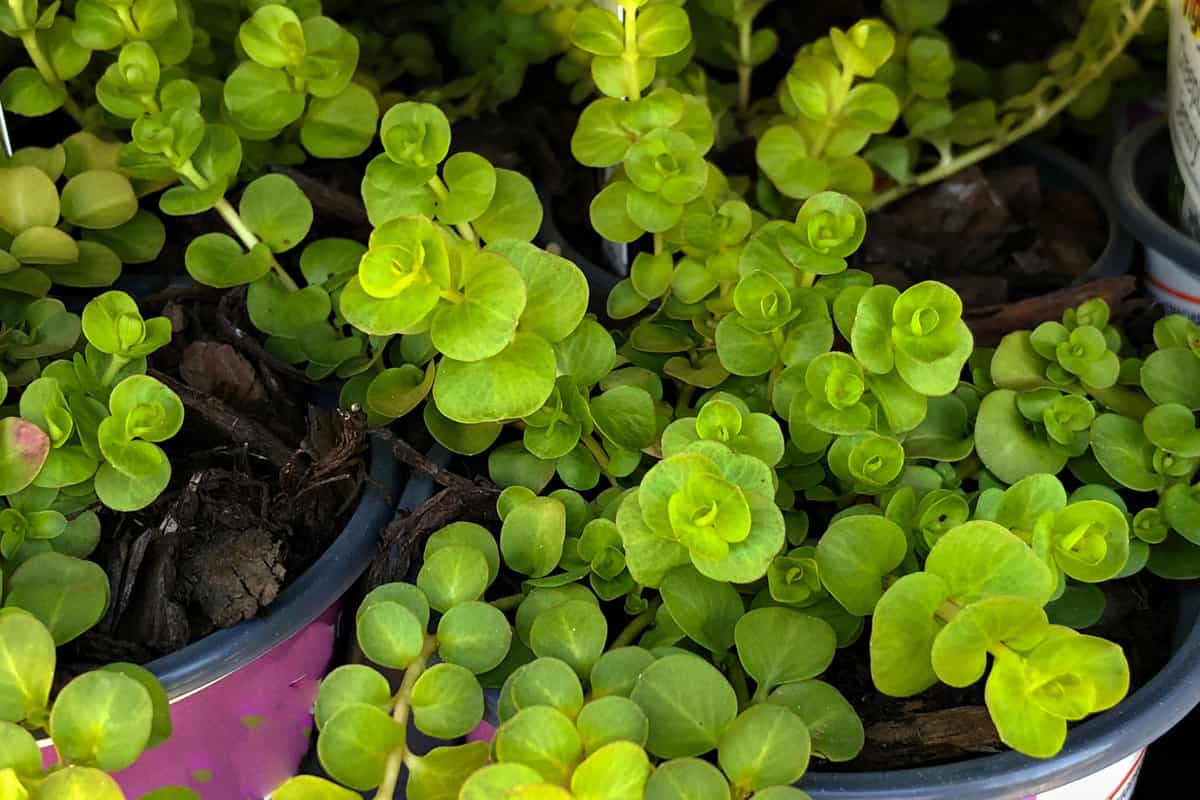
Its golden-yellow foliage and small, yellow flowers make it a popular choice for brightening up a shady garden.
This low-maintenance plant also provides excellent erosion control, making it a valuable asset in any shade garden.
Understanding Shade Levels
When planning a shade garden in USDA Zone 4, it's crucial to understand different shade levels and the effect they have on plant growth.
This will enable you to make informed decisions on the best shade-loving plants for your garden.
Full Shade
Full shade refers to areas that receive less than 3 hours of direct sunlight per day. In these zones, light levels are minimal, and only a few plants can thrive.
Full-shade plants are adapted to very low light conditions and may suffer if exposed to too much sunlight.
Examples of full-shade plants for USDA Zone 4 include hostas and some ferns.
Partial Shade
Partial shade environments receive about 3 to 6 hours of direct sunlight each day.
This setting is ideal for numerous shade-loving plants, as it provides them with enough light to grow without overwhelming them.
Some plants in this category are also known as "dappled shade" due to the light they receive through an overhead tree canopy.
Partial Sun
Partial sun is similar to partial shade, with approximately 3 to 6 hours of sunlight each day.
The primary difference is the time at which plants receive sunlight.
Partial sun plants prefer morning or late afternoon light rather than the intense midday sun.
Full Sun to Partial Shade
Full sun to partial shade plants can typically tolerate a range of light conditions, from full sun (6 or more hours daily) to partial shade (up to 6 hours).
This category is perfect for areas that might experience varying light levels throughout the day or seasonal shifts in sun exposure.
Wrapping-Up
Choosing the right shade-loving plants can transform a USDA Zone 4 garden into a vibrant oasis.
By selecting resilient species that thrive in the cold, you can create a visually stunning garden in shaded areas.
However, it's important to keep in mind each plant's unique needs for soil, moisture, and sunlight to ensure their robust growth.
With these plants, your Zone 4 garden will become a captivating haven for relaxation throughout the year.
Get inspired with our planting ideas and topics below!
11 Zone 4 Plants That Attract Butterflies
The 17 Best Plants to Grow in Zone 4b (-25 to -20 °F/-31.7 to -28.9 °C)
